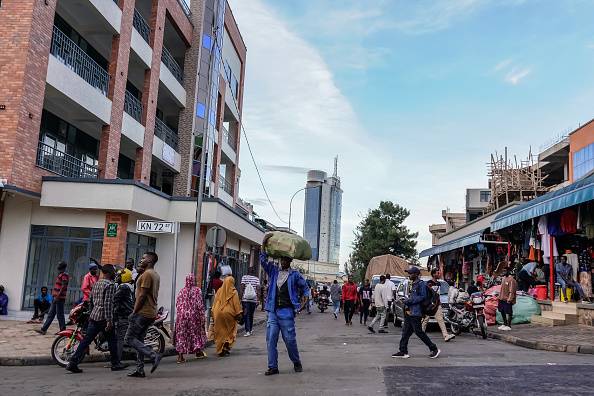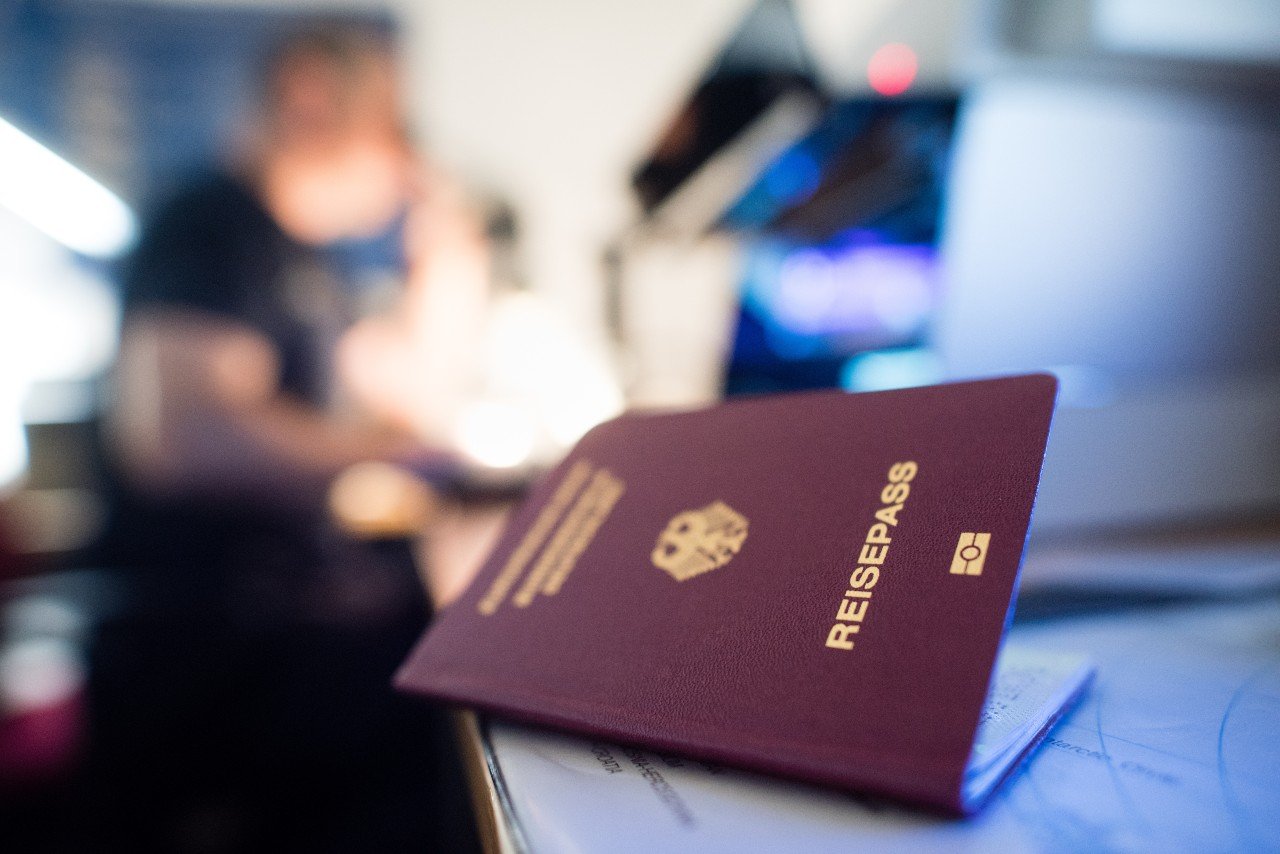A view of crowded streets in the Kigali city center during the afternoon rush hour on April 05, 2024 in Kigali, Rwanda. (Photo by J. Countess/Getty Images)
In an age where artificial intelligence (AI) can write poetry and drive cars, our development algorithms still struggle with a fundamental task: recognising human potential. In the Global South, millions of informal workers operate in sophisticated, self-regulated networks that rival corporate structures in their complexity. Yet our financial systems, built on rigid risk assessment models, consistently fail to see their capabilities. Instead of measuring possibility, we measure risk. Instead of recognising ingenuity, we focus on limitations.
Consider Kigali’s bustling streets, where thousands of moto-taxi drivers navigate steep hills daily. These drivers have created intricate savings groups with self-monitoring systems. They manage complex financial networks, support extended families and contribute significantly to urban mobility. Yet they face exclusion from formal financial systems because of conventional lending criteria. Their story echoes from the streets of Nairobi to the markets of Accra — from mobile money agents handling millions in daily transactions to market traders orchestrating sophisticated supply chains.
This paradox lies at the heart of our development challenge. We have the resources — what we lack is the right formula for deploying them. We have yet to blend the tools of modern commerce with a deep commitment to human development. And there’s a deeper problem emerging. Our democratic conversation itself is under siege. Millions of bots and AI systems are shaping our public discourse, creating a digital cacophony. These systems don’t vote, don’t care about politics, yet they’re increasingly orchestrating our conversations about development and democracy.
As development leaders, we can transform these problems into opportunities through three fundamental principles that reimagine how we approach human potential.
Challenge the system: Major development institutions, from multilateral banks to United Nations agencies, shape the rules that determine who gets access to resources and opportunities. Having worked within these systems, I’ve seen how institutional thinking often accepts exclusion as normal, treating long-standing barriers as immutable facts rather than choices made by those who came before us. We begin to accept that informal traders can’t get credit, that community innovations don’t fit our models, that certain voices don’t belong in development conversations. But real progress begins when we maintain an outsider’s perspective — when we keep questioning these so-called givens.
In Madagascar, for example, local communities defied conventional resource management by establishing their own locally managed marine areas. Using traditional knowledge and customary laws, they created a network that now manages more than 14% of the country’s inshore seabed, proving more effective than standard top-down approaches. Their success wasn’t just about better fishing; it demonstrated how local wisdom, when allowed to challenge institutional assumptions, can create more sustainable solutions.
Lead with empathy, not algorithms: While data drives modern decision-making — from college admissions to loan approvals — human potential transcends metrics. Take M-PESA in Kenya, where success came from understanding how communities actually managed money rather than applying traditional banking metrics. When conventional financial indicators would have seen only risk, the service recognised existing patterns of trust and informal financial networks. Today, it processes transactions worth more than 50% of Kenya’s GDP.
Similarly, in Tanzania’s Ngorongoro Conservation Area, incorporating Maasai communities’ multi-generational knowledge of local ecosystems has proven more effective than conventional conservation models. Development leadership requires seeing the stories behind statistics, ensuring that technological advances serve everyone, not just the privileged few.
Reimagine finance for social good: The tools that built financial markets can create social prosperity. Consider that in 2022, Africa received more than $100 billion in remittances, dwarfing the $53 billion in official development assistance. Yet these funds primarily support consumption rather than investment. By innovating financial instruments — such as community infrastructure bonds or securitised small business cash flows — we can transform remittances into engines of development. In Kenya, M-PESA’s success demonstrated how financial innovation could unleash trapped potential, processing transactions worth 50% of the country’s GDP while including millions in the formal economy.
Our development challenge isn’t resource scarcity, it’s imagination poverty.. Global poverty persists not as an immutable law but as a result of choices – in our economics, politics, and algorithms. The same financial instruments that have generated unprecedented wealth can create unprecedented social good.
The moto-taxi riders in Kigali, the waste recyclers along the Vaal, the market traders in Accra represent the untapped human potential that our current systems fail to recognise. By reimagining our approach to development, we can write a new algorithm: one that measures success not just in returns, but in transformed lives and communities. This is the true algorithm of love — seeing potential where others see only risk, recognising humanity where systems see only statistics.
Maxwell Gomera represents the United Nations Development Programme in South Africa, is the director of the Africa Sustainable Finance Hub and a senior fellow of Aspen Global Innovators.




















Discussion about this post